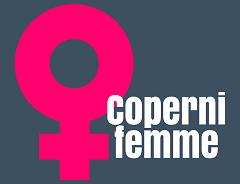African women are world champions in entrepreneurship.
According to the study on the subject published by Rolland Berger for Women in Africa, nearly 24% of African women of working age are involved in business creation. That’s more than anywhere else. By way of comparison, the same rate is expected to be 11% in Southeast Asia and the Pacific, regions that are among the most entrepreneurial. According to the study, female entrepreneurship is estimated to generate between US$250 and 300 billion, or about 12 to 14% of the continent’s GDP.
Despite a real dynamic in the figures, the situation on the ground is more complicated. First difficulty? “Facing an environment that is hostile to women,” says Sandra Ajaja. The young woman, invited to the Development Days (EDD) organized by the European Commission, knows what she is talking about. “I have been confronted with this problem,” she says. When you are a woman, and you want to start your own business, you have to fight harder. Obtaining financing is, for example, very complicated. »
More women in the digital technology
A sector to which Inès Tatiana Hounjo is also dedicated to. “Women are not sufficiently represented in the digital world; integration is difficult,” she says. An IT expert, the young Beninese woman is multiplying initiatives aimed at reducing gender inequalities in the digital world. Women TechMakers, a program also developed by Google and based in Abomey Calavi, offers training to women in the sector.
The objective of this learning is to “create solutions adapted to local realities.” Solutions” that come from outside, even if they work well abroad, cannot solve problems that are endemic to Africa,” says Inès Tatiana Hounjo. In some parts of Benin, for example, we have to do without the Internet. We must, therefore, create programs and platforms that do not require a connection.
Inadequate training
To put an end to injustices, and to facilitate women’s entry into the labor market, Sandra Ajaja founded FemPower Africa in Lagos, her hometown. And it addresses another difficulty well known to African women entrepreneurs: the lack of appropriate skills. The Women in Africa study also highlight this problem.
“The lack of training adapted to business creation prevents women from continuing their activity. Setting up a business plan, keeping accountancy…, these are things they could not learn in school, and yet they are essential to the development of a company,” the report states. As a result, if a business is successful in the early stages of the company’s life, it quickly stagnates.
“Many women in Nigeria are unemployed because their training does not allow them to find work. FemPower has embarked on training, particularly in the new technologies sector, to provide them with the skills necessary for entrepreneurship,” explains its founder. With its 2,000 members and 30 volunteers, Sandra Ajaja’s social enterprise has already facilitated the creation of 52 women-owned businesses and trained more than 2,000 people in business development in Nigeria, Kenya, and Zambia. Nearly 200 women also benefited from training in Google coding and digital skills.

